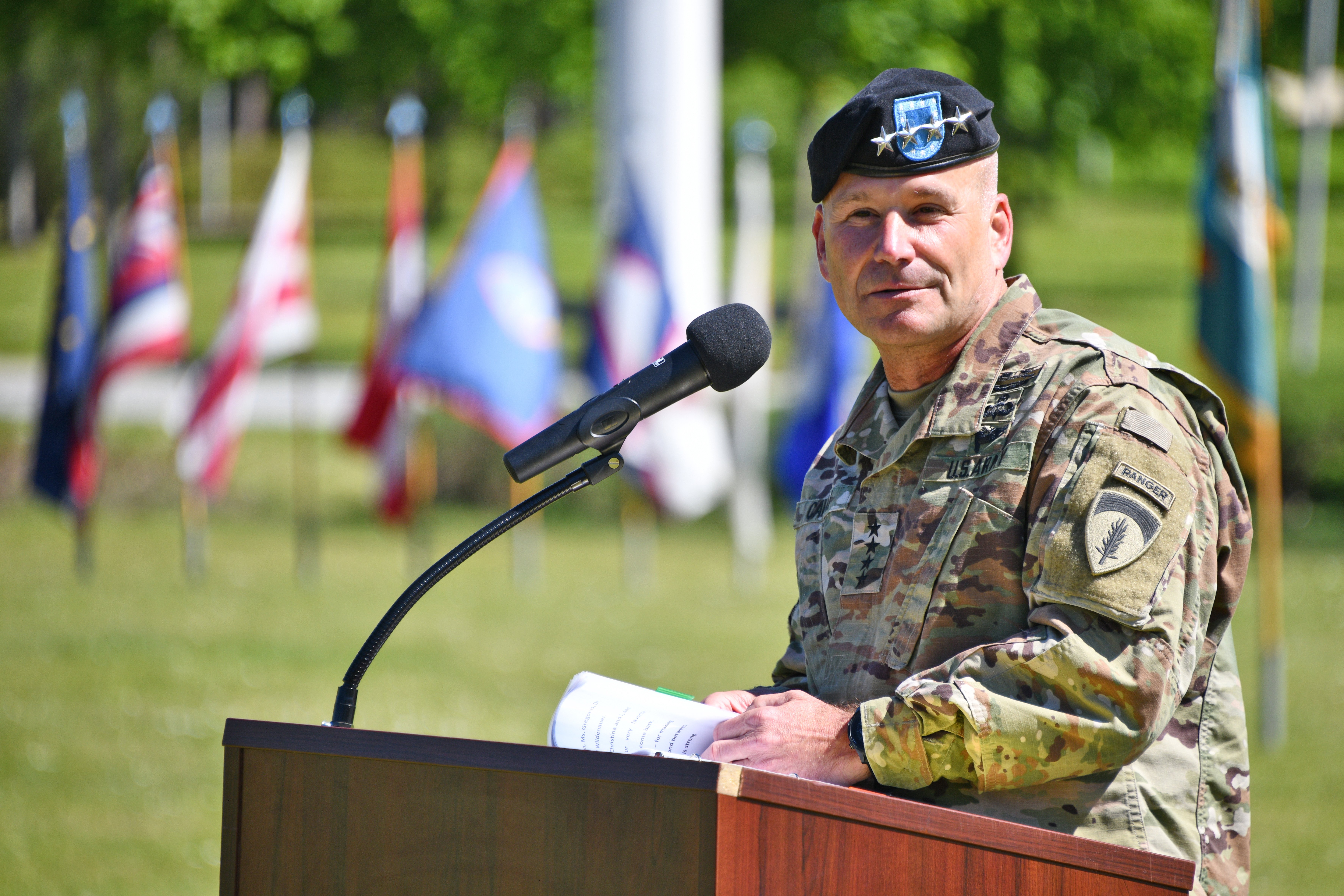
The nominee to be the next top commander of United States forces in Europe told the Senate Armed Services Committee this week that he “looks forward to the accession” of Finland and Sweden to NATO to bolster the alliance’s defenses, particularly in the Baltic Sea and High North.
Army Gen. Christopher Cavoli described Finland as “absolutely expert in defending the [830-mile] border” with Russia and Sweden’s maritime surface and submarine force as providing “a bunch of strategic dilemmas” to Kremlin military planners in the Baltic Sea.
With the addition of 64 F-35 Lightning II Joint Strike Fighters to the Finnish Air Force and a well-trained and equipped army, Finland “will arrive with capacity and capability” when approved for membership, Cavoli noted. He added that for years Russia has kept only a minimal force along the border, but that would likely change if Helsinki joined the alliance.
Cavoli, now serving as the Army’s top general for Europe and Africa, said Sweden is committed to raising its security spending to 2 percent of its gross domestic product, increasing the size of its army and has already ordered U.S. Patriot air defense systems as an indication of its intentions. The 2 percent goal is an alliance threshold for security spending adopted after Russia’s invasion of Ukraine eight years ago. He called Gotland, a Swedish island a little more than 300 kilometers from Kaliningrad, which is home to the Russian Baltic fleet, “an aircraft carrier” when it comes to affecting Moscow’s military thinking.
Several times, he answered questions about the capability of the two Nordic nations to move quickly into NATO operations. “We exercise with Finland. We exercise with Sweden” regularly in force-on-force training, up to cyber security and operations.
As for Turkish concerns about the two nations joining the alliance, Cavoli said, “the core of the matter is diplomatic” and has not affected NATO’s military relationship with Ankara’s armed forces.
Ankara’s objections center on what it calls support by the two countries for the Kurdistan Workers Party, known as the PKK, which the Turkish government lists as a terrorist organization, and the Turkey’d desired extradition of a number of Kurds to face trial on terrorism charges. The Turks also object to the two nations’ restrictions of armed sales to Ankara.
The three nations met in recent weeks to discuss Turkish concerns about Finland’s and Sweden’s application for NATO membership, which the alliance will consider at its meeting in Madrid next month.
Cavoli, nominated to lead U.S. European Command, called the European Deterrence Initiative “absolutely vital” in supporting Ukraine following the Feb. 24 Russian invasion and reassuring allies of Washington’s strong support in the crisis. “It’s kind of been like oxygen to us,” he said.
With the funds from the initiative, he said the U.S. within a matter of days was able to move an Army corps headquarters, an armored brigade combat team and fifth-generation fighter aircraft and increase the U.S. naval presence in Europe. In addition, prepositioning equipment, ammunition and supplies on the continent and practicing airlifting Army brigades across the Atlantic has paid dividends in bolstering the alliance now and supporting Ukraine.
“Every single screw driver had been placed” with the arriving brigade combat team within four days of its arrival, he added.
The congressionally-approved initiative was launched following the Russian seizure of Crimea and backing of separatists in eastern Ukraine in 2014. Several senators noted that Cavoli was one of the first senior American officers sent to Kyiv to begin training Ukrainian soldiers to with new tactics and updated equipment to defend their homeland.
So far, Russia has not tried to stop the logistics flow from the U.S. to Europe. “In U.S. Army Europe, [the flow of forces and equipment] is a source of concern” and closely monitored. Some of these movements of equipment to allies started before Russia’s February invasion.
The “fort to port, port to port, port to point of need” effort is moving effectively, he said, but each step “brings significant challenges” of kinetic or cyber attack.
Without going into detail in an open session, Cavoli said quantum computing and artificial intelligence are playing roles in operations supporting Ukraine “to keep track of people and what they’re doing.”
“The United States’ special role [in NATO] is to point the way to the future … we create a model that others can emulate,” he said.
Cavoli added, “we cannot be a one problem alliance,” totally focused on Ukraine. He was referring to growing Chinese influence in Europe, Africa and the Middle East and the continued presence requirement in the Balkans, where the Russians retain a keen interest.
To help ease a global shortage of grain caused by the fighting in Ukraine and sanctions against Russia, Cavoli said Germany has begun “a Berlin trainlift” to its ports; Poland has opened its borders to transship foodstuffs to countries directly impacted by the war; and Romania’s largest port on the Black Sea has also started shipping foodstuffs to countries in Africa.





